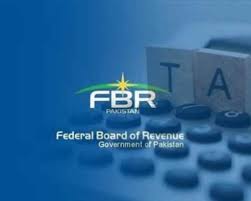Pakistan Engineering Council-PEC
Introduction:
The Pakistan Engineering Council (PEC) is a regulatory and professional body that oversees the engineering profession in Pakistan. Established in 1976 under the PEC Act, it is responsible for regulating the engineering profession, accrediting engineering programs, and promoting the welfare and interests of engineers in Pakistan. Here are some key aspects to explore about the Pakistan Engineering Council:
Regulatory Authority:
PEC acts as a regulatory authority for the engineering profession in Pakistan. It sets and enforces standards and codes of ethics for engineers and engineering firms operating in the country.
Registration of Engineers:
PEC maintains a register of engineers in various disciplines, including civil, electrical, mechanical, chemical, and more. Engineers need to be registered with PEC to practice their profession legally in Pakistan.
Accreditation of Engineering Programs:
PEC is responsible for accrediting engineering programs offered by universities and institutions in Pakistan. Accreditation ensures that these programs meet established quality standards and produce competent graduates.
Professional Development:
PEC offers various programs and initiatives to promote the professional development of engineers. This includes workshops, seminars, and continuing education opportunities.
Code of Ethics:
PEC has established a code of ethics and professional conduct that engineers are expected to adhere to. This code outlines the ethical principles and responsibilities of engineers in their professional practice.
Licensing:
PEC issues licenses to engineering firms and consultants, ensuring that only qualified and registered engineers and firms are engaged in engineering projects.
International Recognition:
PEC works to establish and maintain international recognition of Pakistani engineering qualifications. This is important for engineers seeking employment or further education abroad.
Publications:
PEC publishes engineering journals, guidelines, and standards to promote knowledge sharing and best practices within the engineering community.
Committees and Boards:
PEC has various committees and boards that focus on different aspects of engineering, such as education, registration, and professional development. These bodies help in decision-making and policy formulation.
Awards and Recognition:
PEC recognizes outstanding contributions to the field of engineering through awards and honors, encouraging excellence within the profession.
Engineering Challenges:
PEC collaborates with other organizations to address engineering challenges in Pakistan, such as infrastructure development, energy, and environmental issues.
Complaints and Dispute Resolution:
PEC provides mechanisms for handling complaints and disputes related to engineering projects and professionals, ensuring accountability and fair resolution.
Background:
Establishment of PEC:
Detail the year PEC was established (1976) and the primary motivations behind its formation, including the need to regulate and standardize engineering practices in Pakistan.
Mission and Objectives:
Elaborate on PEC’s goals, such as promoting engineering education, ensuring quality control, and maintaining ethical standards within the profession.
Organizational Structure:
Provide an overview of PEC’s structure, including its governing body, various committees, and regional offices. Mention the role of the Chairman and how the council members are elected or appointed.
Role and Functions:
Regulation of Engineering Education: Discuss in detail how PEC accredits engineering universities and colleges, sets curriculum standards, and ensures the continual improvement of educational quality.
Professional Licensing:
Explain the process of becoming a Registered Engineer (RE) or Professional Engineer (PE) in Pakistan, the importance of these certifications, and PEC’s role in this process.
Standards and Quality Assurance:
Highlight PEC’s role in setting engineering standards for various projects and practices in Pakistan, ensuring safety, efficiency, and sustainability.
International Recognition and Collaboration:
Mention PEC’s affiliations with international engineering bodies, like the Washington Accord, and its efforts in ensuring that Pakistani engineers are recognized globally.
Impact and Achievements:
Discuss the significant impact of PEC on enhancing the quality of engineering education and practices in Pakistan.
Highlight notable achievements or milestones, such as the introduction of Continuing Professional Development (CPD) programs for engineers.
Challenges and Future Directions:
Address some challenges faced by PEC, like adapting to rapid technological changes and ensuring uniform standards across a diverse engineering landscape.
Speculate on future initiatives PEC might undertake, like increased international collaborations or embracing new technological trends in engineering education.
Pec Registation Number
The Pakistan Engineering Council (PEC) registration number is a unique identifier assigned to registered engineers in Pakistan. It serves as proof of an engineer’s registration with PEC and is often required for employment in engineering-related positions and for participating in engineering projects. Each registered engineer is issued a PEC registration number, and it typically consists of a combination of letters and numbers.
To obtain or verify your PEC registration number, you should contact the Pakistan Engineering Council directly or visit their official website. The process for obtaining a PEC registration number may involve submitting relevant educational and professional credentials, meeting the required criteria, and paying the necessary fees. Keep in mind that the specific requirements and procedures may vary depending on your engineering discipline and qualifications.
It’s essential to maintain and update your PEC registration as necessary to ensure that your engineering credentials are valid and up-to-date, especially if you are practicing engineering in Pakistan.
